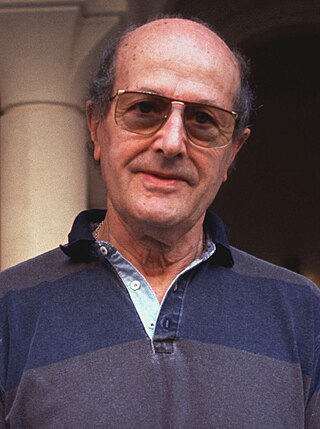
Manoel Cândido Pinto de Oliveira was a Portuguese film director and screenwriter born in Cedofeita, Porto. He first began making films in 1927, when he and some friends attempted to make a film about World War I. In 1931, he completed his first film Douro, Faina Fluvial, a documentary about his home city Porto made in the city-symphony genre. He made his feature film debut in 1942 with Aniki-Bóbó and continued to make shorts and documentaries for the next 30 years, gaining a minimal amount of recognition without being considered a major world film director.
The Women on the Roof is a 1989 Swedish film written and directed by Carl-Gustav Nykvist. It stars Amanda Ooms and Helena Bergström. It was entered into the 1989 Cannes Film Festival. At the 25th Guldbagge Awards, Stellan Skarsgård won the award for Best Actor. The film was selected as the Swedish entry for the Best Foreign Language Film at the 62nd Academy Awards, but was not accepted as a nominee.
Festival da Canção or Festival RTP da Canção is the name given to the national festival produced and broadcast by Rádio e Televisão de Portugal (RTP) to select its entry for the Eurovision Song Contest. It was first held in 1964.
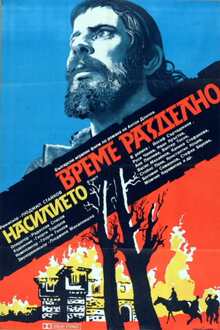
Time of Violence is a 1988 Bulgarian film based on the novel Time of Parting by Anton Donchev. It consists of two episodes with a combined length of 288 minutes. It premiered at the 1988 Cannes Film Festival where it was screened in the Un Certain Regard section. The film was selected as the Bulgarian entry for the Best Foreign Language Film at the 62nd Academy Awards, but was not nominated.

Belle Toujours is a 2006 French-language Portuguese film directed by Manoel de Oliveira. It was Portugal's submission to the 80th Academy Awards for the Academy Award for Best Foreign Language Film, but was not accepted as a nominee. It is a sequel to the film Belle de Jour (1967).

Abraham's Valley is a 1993 Portuguese drama film directed by Manoel de Oliveira, based on a novel by Agustina Bessa-Luís, and partially inspired by Gustave Flaubert's 1857 novel Madame Bovary. The film was selected as the Portuguese entry for the Best Foreign Language Film at the 66th Academy Awards, but was not nominated.
Always Further On is a 1965 Mexican drama film directed by Luis Alcoriza. It won the FIPRESCI Prize at the 1965 Cannes Film Festival. The film was also selected as the Mexican entry for the Best Foreign Language Film at the 38th Academy Awards, but was not accepted as a nominee.
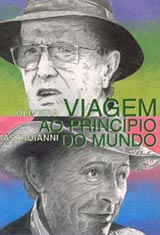
Voyage to the Beginning of the World is a 1997 Portuguese-French drama film directed by Manoel de Oliveira and starring Marcello Mastroianni. The film was selected as the Portuguese entry for the Best Foreign Language Film at the 70th Academy Awards, but was not accepted as a nominee. It was Mastroianni's final film.

Spain Again is a 1969 Spanish drama film directed by Jaime Camino. It was entered into the 1969 Cannes Film Festival. The film was also selected as the Spanish entry for the Best Foreign Language Film at the 41st Academy Awards, but was not accepted as a nominee.
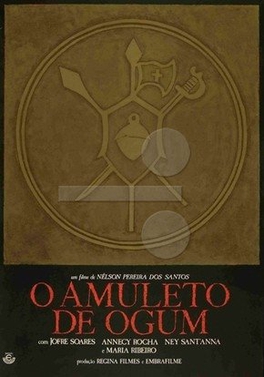
The Amulet of Ogum is a 1974 Brazilian drama film directed and co-written by Nelson Pereira dos Santos. It was entered into the 1975 Cannes Film Festival. It was also selected as the Brazilian entry for the Best Foreign Language Film at the 48th Academy Awards, but was not accepted as a nominee.
National Heritage is a 1981 Spanish comedy film that was co-written and directed by Luis García Berlanga. It was entered into the 1981 Cannes Film Festival. The film was also selected as the Spanish entry for the Best Foreign Language Film at the 54th Academy Awards, but was not accepted as a nominee.

Subway to the Stars is a 1987 Brazilian drama film directed by Carlos Diegues. It was entered into the 1987 Cannes Film Festival. The film was selected as the Brazilian entry for the Best Foreign Language Film at the 60th Academy Awards, but was not accepted as a nominee.
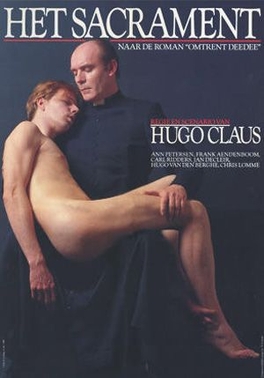
The Sacrament is a 1989 Belgian comedy film directed by Belgian author Hugo Claus. It was screened in the Un Certain Regard section at the 1990 Cannes Film Festival. The film is based on Claus' own novel Omtrent Deedee and his play Interieur. The film was selected as the Belgian entry for the Best Foreign Language Film at the 62nd Academy Awards, but was not accepted as a nominee.
Anxiety is a 1998 Portuguese drama film directed by Manoel de Oliveira. It was screened out of competition at the 1998 Cannes Film Festival. The film was selected as the Portuguese entry for the Best Foreign Language Film at the 71st Academy Awards, but was not accepted as a nominee.

Case of the Naves Brothers is a 1967 Brazilian drama film directed by Luis Sérgio Person. Based on the João Alamy Filho novel of the same name, it tells the story of Joaquim and Sebastião Naves, who were arrested during the Estado Novo dictatorship and after being tortured confessed to a crime they had not committed. The film was entered into the 5th Moscow International Film Festival. It was also selected as the Brazilian entry for the Best Foreign Language Film at the 40th Academy Awards, but was not accepted as a nominee.
Day of Despair is a 1992 Portuguese drama film based on the life of Portuguese writer Camilo Castelo Branco. It was directed by Manoel de Oliveira. The film was selected as the Portuguese entry for the Best Foreign Language Film at the 65th Academy Awards, but was not accepted as a nominee.
Francisca is a 1981 Portuguese drama film based on the novel Fanny Owen by Agustina Bessa-Luís and directed by Manoel de Oliveira. The film was selected as the Portuguese entry for the Best Foreign Language Film at the 55th Academy Awards, but was not accepted as a nominee.

Arabian Nights is a 2015 internationally co-produced three-part drama film directed by Miguel Gomes and based on the One Thousand and One Nights, comprising Volume 1: The Restless One, Volume 2: The Desolate One and Volume 3: The Enchanted One. It was screened as part of the Directors' Fortnight section at the 2015 Cannes Film Festival. The film was also selected to be shown in the Wavelengths section of the 2015 Toronto International Film Festival.

Better Days Ahead is a 1989 Brazilian comedy-drama film directed by Carlos Diegues.

Letters from War is a 2016 Portuguese drama film directed by Ivo M. Ferreira and based on the letter collection D'este viver aqui neste papel descripto by António Lobo Antunes. It was selected to compete for the Golden Bear at the 66th Berlin International Film Festival, where it had its world premiere. It was selected as the Portuguese entry for the Best Foreign Language Film at the 89th Academy Awards but it was not nominated.













